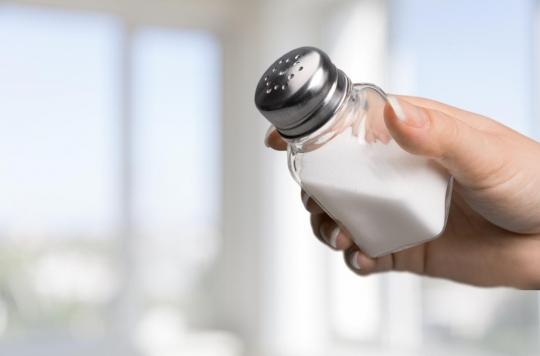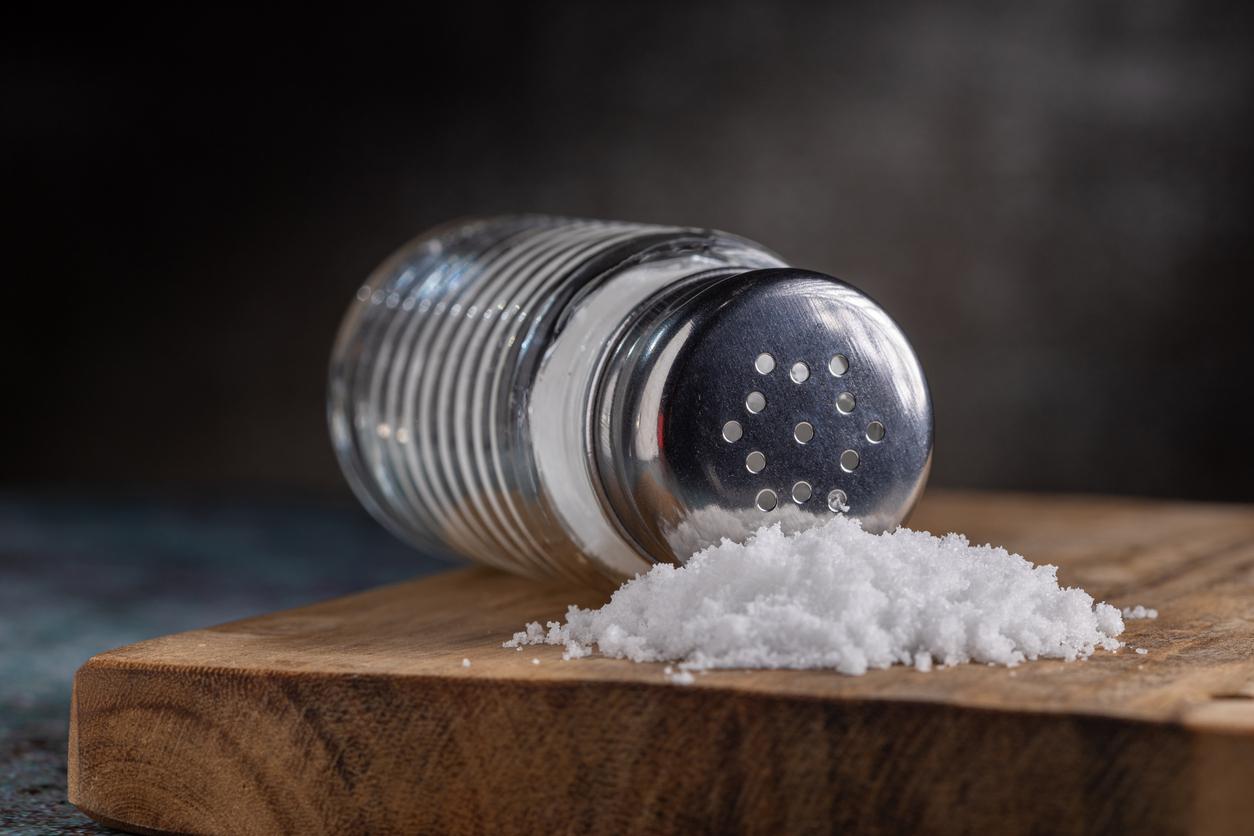In the UK, after regulations on salt content in manufactured foods were relaxed in 2011, researchers observed an increase of 9,900 cases of cardiovascular disease and 1,500 cases of stomach cancer.

For years, the public authorities of many Western countries have been waging war on salt. Because its excess consumption is officially recognized as a risk factor for high blood pressure, cardiovascular disease and stomach cancer. According to the World Health Organization (WHO), 2.5 million deaths could be avoided each year if all adults reduced their salt intake to less than 5 grams per day. But on an individual scale, it is clear that we have little control over what we really eat. Indeed, the salt that we add ourselves in our diet counts for only 1/5thof our daily intake. The rest comes from manufactured food. It is therefore the excessive quantity of salt added in the ultra-processed foods in order to give them more flavor and to increase their shelf life, which represents a risk.
In France, while the health authorities set themselves targets for reducing salt consumption, no legislation constrains manufacturers. In the United Kingdom, while the country previously had very strict measures on the subject, since 2011 and the relaxation of the regulations on the maximum content of salt in foods sold in supermarkets, researchers have observed a significant increase in cardiovascular disease and stomach cancer. The results of this study were published Thursday, July 18 in the journal Journal of Epidemiology and Community Health.
Researchers from Imperial College London and the University of Liverpool used data from the National Food and Nutrition Survey and national salt surveys to analyze changes in daily salt consumption. the English population over 13 years. The aim is to compare the health effects of changes in legislation on salt in the food industry.
Two in three Britons consume too much salt
Between 2003 and 2010, the British Food Standards Agency (FSA) closely monitored the salt content of foods and had reduction target agreements with manufacturers (-10 to 20% in 85% categories). These regulations were accompanied by public health campaigns explaining how to reduce salt intake. At the same time, the government regularly threatened to take tougher measures, the researchers explain.
However, in 2011, this policy was replaced by the Public Health Responsibility Deal. From there, the manufacturers set their own targets through voluntary commitments and were asked to report their progress to the Ministry of Health. But this new system lacked strong tracking and metrics, laments Dr. Anthony Laverty, lead author of the study. Also, since 2011, the annual reduction in salt intake has slowed to 0.11 g per day for men and 0.07 g per day for women.
Today, while the British public authorities advise adults not to eat more than 6 g (the equivalent of a teaspoon) of salt per day, they consume an average of 8 g daily. Thus, two out of three people consume too much salt.
This change in policy would have generated a loss of 160 million pounds
Since 2011, researchers have found an increase of 9,900 cases of cardiovascular disease and 1,500 stomach cancers. And these could be attributable to policy changes, they warn. In addition, the health costs linked to the increase in strokes, heart attacks and cancers as well as the loss of productivity caused by absenteeism have caused the United Kingdom to lose 160 million pounds (the equivalent of 178 million euros) between 2011 and 2017.
If no action is taken quickly, there will be even more heart attacks, strokes and cases of easily preventable cancers, warn the researchers. According to their calculations, at this rate, 26,000 new cardiovascular diseases and 3,800 cases of stomach cancer should be diagnosed between 2019 and 2025. That is a cost of 960 million pounds for the British economy.
“There is evidence around the world that mandatory approaches are far more effective than self-regulating by industry in reducing salt and sugar levels in the diet,” Laverty insists. “The FSA’s approach was one of the strongest strategies internationally. Our study proves that we now need an equally serious program to accelerate the decline in salt intake. This will require specific targets and penalties to ensure that the food industry reduces the level of salt in its food. More flexible measures could lead to heart attacks, strokes and cases of cancer”, adds Professor Martin O’ Flaherty, co-author of the study.
Cold cuts, ready meals, sauces and condiments to avoid
In France, 35,000 deaths are attributable to salt each year. While current consumption is around 10 grams for men and 7 grams for women, the National Health Nutrition Program aims for a salt intake of less than 8g/day for men and 6.5g/day for women. and children.
According to the National Agency for Food, Environmental and Occupational Health Safety (ANSES)the foods that provide the most salt on a daily basis are: “bread and rusks, cold meats (in particular dry sausage and ham), broths (vegetables or meats), savory snacks, instant noodles, sauces and condiments, cod and anchovies, cooked mealscheeses, soups and stews, as well as quiches and pizzas”.
“Given the insufficient impact of voluntary steps to reduce salt levels on the salt intake of the population, the Agency recommended the implementation of additional actions, where appropriate regulatory, in order to increase to both the number of products concerned and the level of reduction in the salt content of processed foods”, notes ANSES. In the meantime, nutrition labeling Nutri-scoremay be soon mandatory on all productsprovides consumers with useful information on their salt content and overall quality.
.
















